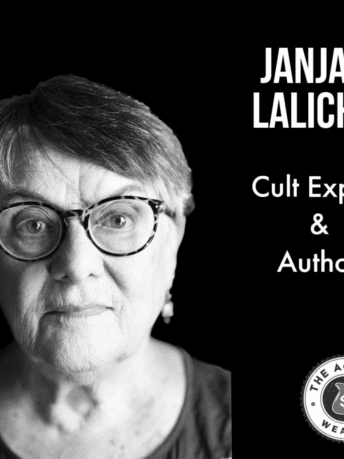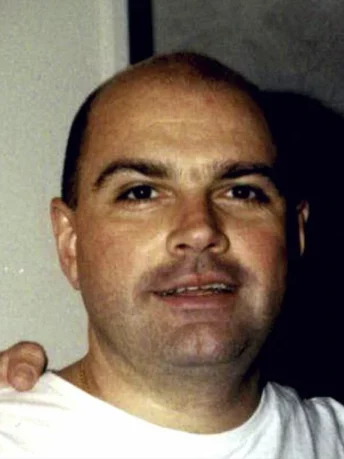Psychiatrist Robert Jay Lifton and others explore the issue.
Originally published in PsychologyToday.
Is Trumpism a cult?
This question, among other issues, has preoccupied certain psychiatrists and mental health professionals since Donald Trump rose to political prominence in 2016. How could one even begin to approach the question?
Ever since the Office of Strategic Services (OSS) asked American psychoanalysts to take Hitler’s measure in the 1940s, there have been two approaches to psychological comment on public figures of concern. Though the two are often intertwined, a mental health professional’s emphasis tends to fall on one or the other.
One tradition is represented by the psychologist and psychoanalyst Walter C. Langer, who emphasized individual personality, early life, and sexual development. The other tradition, represented by psychoanalyst Erik H. Erikson, explored the “fit” between culture and personality, trying especially to understand (and therefore potentially to weaken) the bond between a leader and his followers.
Both traditions are alive and well.
Psychiatrist Bandy Lee’s bestselling edited volume The Dangerous Case of Donald Trump (2017) amply demonstrates the point. In this volume, a large group of mental health professionals express their concerns that Trump is dangerous and mentally ill.
In the tradition of Langer, many contributors to the book focus on what they see as Trump’s individual pathology. These experts often invoke a DSM checklist or the equivalent to make their point.
Psychologist Craig Malkin, for example, explains narcissism to his readers and asserts that Trump fits the profile. Malkin then describes with concern how narcissistic leaders can devolve into a “psychotic spiral” over time. Working in a similar vein, psychiatrist and psychoanalyst Lance Dodes describes the criteria for sociopathy, then presents evidence that in his view shows that Trump is a sociopath.
Among the book’s most thoughtful contributors in this tradition is that of psychiatrist and psychoanalyst Leonard Glass. He sees Trump’s traits as including impulsivity, a tendency toward angry retaliation, and an “insistence on his own infallibility.” (Full disclosure: I will be co-teaching a course with Glass and Dodes at the Boston Psychoanalytic Society and Institute in October.)
Glass recounts his own personal struggle with the American Psychiatric Association (APA) over the ethical legitimacy of comment. It was a struggle that ultimately led to his resignation from that organization in 2017.
The Erikson tradition is represented in several places in the volume, but is especially notable in the wide social frame of reference used in Bandy Lee and Judith Herman’s prologue and in Robert Jay Lifton’s foreword. These three psychiatrists, two of them APA members, lay out a rationale for morally concerned professionals speaking out. This rationale is related to Lifton’s idea of a “malignant normality” that can creep insidiously into a society and affect its accepted norms over time—and to the contravening role of the “witnessing professional” in such times.
Professional ethics guidelines such as the APA’s Goldwater Rule, these experts believe, have an important role in preserving professional integrity and in protecting public figures from defamation. But in their view, the principle of protecting public figures can conflict with other principles, such as the urgent need to address a public emergency created by an ill president.article continues after advertisement
For Lee and Herman, the central question is the issue of professionals’ collusion with, or resistance to, state abuses of power.
Erikson would have understood. He saw Adolf Hitler presenting himself as a kind of mythic hero to German adolescents of the 1930s, a kind of older brother in an era when traditional cultural institutions were breaking down. Through the skillful use of propaganda, he believed, the Nazi leader was giving his young followers permission to free themselves from conscience—as well as from the confining conventional demands of their own fathers.
Erikson believed it was possible for the West to counter Hitler’s appeal, his authoritarianism, and his abuses. But this would require a different approach to the public. His view was similar to that of psychoanalyst Ernst Kris, who thought Hitler’s appeal could be undermined by a nonauthoritarian (democratic) approach to news reporting and to propaganda. Matter-of-fact realism in the media, including the ability to acknowledge difficult developments, could be persuasive.
Jerrold Post and Stephanie Doucette’s book Dangerous Charisma: The Political Psychology of Donald Trump and His Followers (2019) is related to the social perspective of Erikson, Lifton, Lee, and Herman.
This important book is one of the few to devote serious evidence-based attention to Trump’s relation with his followers. Drawing on Post’s extensive background in studying political leadership, Post and Doucette document not only what they see as Trump’s narcissism but the social and psychological basis of his complex appeal to Tea Party members, fellow Republicans, and other specific constituencies.
But it is Robert Jay Lifton himself who has developed the most Eriksonian approach to Trump—and who has most directly addressed the issue of cultism.
Lifton knew Erikson well and shared with him a concern about the dangers of “totalism.” Lifton, for example, emphasizes that totalistic cults have special appeal during times of “psychohistorical dislocation.” Lifton too is concerned about the weakening of institutions that once organized “the life cycle and its belief systems.”article continues after advertisement
Lifton, a research psychiatrist, has had a career-long preoccupation with cultism, thought control, and other manifestations of what his memoir calls an “extreme century.” He has interviewed survivors of the American bombing of Hiroshima; he sought out and interviewed doctors who cooperated with Nazism; and he has tried to understand the thinking of members of Aum Shinrikyo, a Japanese apocalyptic cult that released sarin poison on the Tokyo subway in 1995.
This wrenching moral fieldwork has made Lifton a leader in social psychiatry and in moral introspection. In Trump and his movement, Lifton says, he recognized some of the aspects of cultism that he had discovered in his previous work. In Losing Reality: On Cults, Cultism, and the Mindset of Political and Religious Zealotry (2019), Lifton concludes that Trump “is a special kind of cultist.”
For Lifton, Trump is not totalistic like the leader of Aum Shinrikyo; he is not consistently ideological like many political leaders. Instead, he is a self-absorbed purveyor of a powerful but misleading narrative. Trump’s narrative runs this way: “As a strongman and a dealmaker, he will restore America to its rightful world-dominating military and economic power.”article continues after advertisement
There is more. Lifton thinks there is “a ritual quality” to the chants that Trump encourages at his rallies: “Lock her up!” and “Build that wall.” Much of Trump’s base, in turn, “can be understood as cultist”—that is, as following a guru who serves as “teacher, guide, and master.” Lifton finds apocalyptic and messianic overtones in QAnon, the group whose conspiratorial theories he believes Trump facilitates and calls forth but does not quite endorse.
Nazism, Erikson famously asserted in Childhood and Society, “was only the German version—superbly planned and superbly bungled—of a universal contemporary potential.”
All of the mental health professionals discussed here share something like that point of view, as they try to grasp the phenomenon of Donald Trump.






